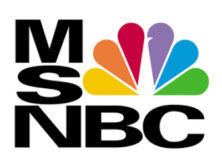
A screenshot of the HealthCare.gov website
A quick glance at the latest poll results on “Public Approval of Health Care Law,” collected and averaged by Real Clear Politics, shows a persistent negative margin – with more people against the health care law known as Obamacare than for it, by an average of about seven percentage points.
(Credit: Real Clear Politics, screenshot)
Despite the consistently negative results of these polls, other questions in some of these same polls suggest a more complex public opinion.
Disapproval or Opposition Doesn’t Necessarily Mean What It Might Seem
Consider, for example, the CNN/ORC poll, which shows the largest net negative rating for the 2010 health care law. The poll asked two questions:
“As you may know, a bill that makes major changes to the country’s health care system became law in 2010. Based on what you have read or heard about that legislation, do you generally favor or generally oppose it?”
(IF OPPOSE) “Do you oppose that legislation because you think its approach toward health care is too liberal, or because you think it is not liberal enough?”
While 56% of CNN’s respondents initially said they “opposed” the law, the follow-up question showed that the percentage included 12% who opposed the law “because it is not liberal enough.”
Overall, then, CNN reports that just 38% opposed the law because it was too liberal, while 53% either favored the law outright (41%) or wanted the law to do more (12%).
These results are also reflected in the Washington Post/ABC poll, which reported 46% who support the law and 49% who oppose it. But that latter number includes 10% of the sample who are opposed because the law “does not go far enough in changing the health care system.”
Overall, then, the Washington Post/ABC poll finds a majority, 56%, who either support the law as is (46%) or who want it to do more (10%), compared with 36% who oppose the law because it goes too far, and another 3% who oppose it but can’t say whether it’s because the law does too much or too little.
Another follow-up question in this poll asked of all those who either opposed the law (49%) or had no opinion of it (5%) revealed that about four in ten of the opponents said they nevertheless wanted the law to “go ahead and see how it works,” while the rest wanted to repeal it.
Thus, again, the overall results show a majority who want the law to proceed – 46% who initially supported it, and another 20% who said they opposed it, but wanted it to go ahead anyway.
The CBS News poll, noted in the RCP chart above, also shows more Americans disapproving of the health care law (51%) than approving (43%). But in a completely separate question, the same poll found that a majority of Americans seemed to want at least as much government involvement in health care as the new law provided, if not more.
Overall, 51% said either that the law did not go far enough in changing the U.S. health care system (22%) or that it was about right (29%), while 43% said it went too far.
These results seem to conflict with the Fox News poll included in the chart at the beginning of this article, which shows a 10-point negative margin. The question in that poll referred to the “health care law known as Obamacare,” and asked, “Do you think the law should stay in place or would you get rid of it?”
But even here, the public sentiment is mixed. The Fox poll also shows that 44% of Americans feel that Obamacare is either wonderful (6%) or represents progress (38%), while just 37% say it’s disastrous. Another 14% say it’s a “step backward,” but whether that means they would want to repeal all of the law is unclear.
When it comes to repealing the law, the Gallup poll – which provides the respondents with more options than just keeping it in place or getting rid of it – finds only 29% who want to repeal the law entirely, while 38% want either to keep the law as is (24%) or expand it (14%). Another 21% want to “scale it back,” though what that means is not clear.
How Much Do Americans Know About Obamacare?
One reason for these somewhat ambiguous, and even conflicting results, is that large numbers of Americans don’t know very much about many of the provisions of the Affordable Care Act or how it will affect them.
The monthly Kaiser Family Foundation poll for September found that about half (51%) of all Americans admit they don’t have enough information about the Affordable Care Act to know how it will affect them and their families.
The poll also showed that many people are misinformed about the key provisions of the law. Only about six in ten, for example, know that the ACA prohibits insurance companies from denying coverage because of pre-existing conditions; and that the federal government will provide financial help to low and moderate income Americans, who don’t get insurance through their jobs, to help them purchase coverage.
More than a third of Americans hadn’t heard of the health insurance exchanges; just over half believed the ACA created a new government-run insurance program (the public option) that would be offered along with private insurance programs.
Given this widespread ignorance of the ACA, one might wonder how the Real Clear Politics poll averages show only 7% of Americans saying they can’t rate the law. The reason 93% of respondents in the polls give an evaluation, even when many don’t have adequate information about the law to make a judgment, is that the pollsters pressure respondents to come up with an opinion by asking a “forced-choice” question (one that provides no explicit option to say “I don’t know”).
The net result is that many respondents, who don’t really have an opinion, will nevertheless give one based on the way a question is worded, or based on information they have gleaned from other questions they’ve been asked.
That’s how it’s possible to have different polls produce sometimes conflicting results. That’s also why it’s important to go beyond the one question – whether someone favors or opposes the law – to get a more nuanced picture of the public will.
A realistic picture of public opinion suggests that, overall, intense opinions are more strongly against than for the health care law, but a majority of Americans seem willing to let the law play out. Most are against defunding the program, and most are against repealing it entirely – though as Gallup shows, most of those wanting the program to go forward would also like some adjustments to the law.
This is a messier picture of public opinion than what might be inferred from the RCP poll averages of support and opposition for the health care law. But in this case, messier is also more realistic.
CORRECTION - November 2, 2013 04:16 PM
This blog post has been corrected to reflect that the 12% who opposed the law did so because it wasn’t liberal enough. An earlier version of this blogpost misstated that 12% opposed the law because it was too liberal. We regret the error.

.JPG)




